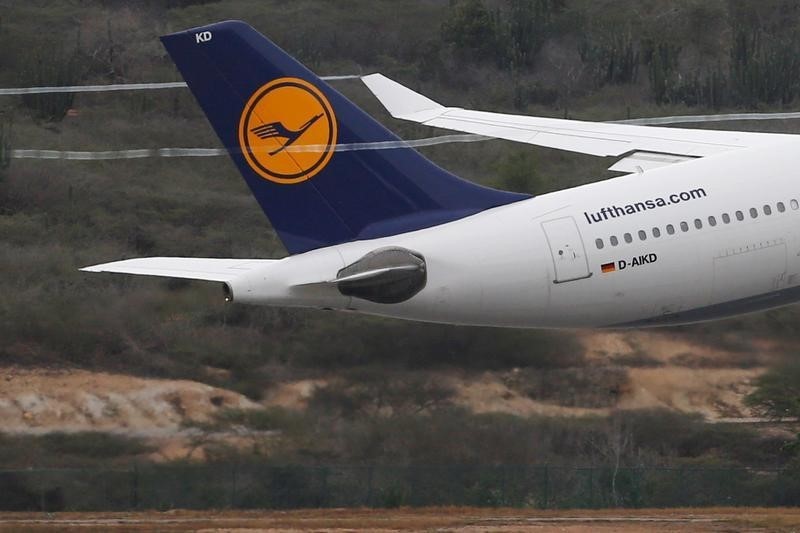By Geoffrey Smith
Investing.com -- To paraphrase George Orwell, if you want a picture of the future, imagine a national flag carrier stamping on a paying passenger – forever.
The shareholders of Lufthansa are waving through a 9 billion euro bailout plan Thursday that will see the German government take a 20% stake and two board seats at the company. The motion is expected to pass at an extraordinary shareholder meeting Thursday after the company’s largest private shareholder, Heinz Hermann Thiele, dropped his opposition to it on Wednesday, after meeting with government officials.
The deal says a lot about the direction that Europe is going in as a result of the pandemic. Instead of seeing it as an opportunity to sweep away postwar creations that are no longer fit for purpose, such as flag carriers, its leadership is trying desperately to defend the indefensible, terrified of change, more preoccupied with the loss of relative prestige within Europe rather than with the welfare of the customer.
The European Commission’s antitrust department, which only two years ago was still able to face down the monopolistic instincts of French and German industry in the shape of the proposed Siemens-Alstom rail merger, has rolled over. Having initially insisted that Lufthansa give up 72 landing slots at Frankfurt and Munich airports, it has now settled for only 24. Lufthansa will still have some two-thirds of landing slots at both, after having swallowed most of Air Berlin three years ago.
That means less competition and less competition means higher prices and, as far as the eye can see, fewer people flying. Perhaps this is the subconscious, or at least unspoken, intention of a government and a continent that has suddenly discovered that airlines have a carbon footprint. It isn’t a secret that Berlin and Paris would prefer people to use Deutsche Bahn and SNCF – two more state-owned money pits – rather than airplanes of any stripe.
But the Berlin government’s public statements suggest its real concern is about losing market share in intercontinental flying to hubs in France and the Netherlands, and about the spread of the looser - i.e, less generous -- employment terms of rivals such as Ryanair, EasyJet and Wizz Air.
This government can’t hide its love for the high-wage, high-pension, high-protection labor model that Lufthansa can only defend if its market share is protected by regulation. The announcement of a deal on Thursday with cabin crew union UFO to shave labor costs by 500 million euros doesn’t end that model, although it will allow the government to claim that it extracted some concessions in return for its support.
Lufthansa share had risen 14.9% by 9 AM ET. By contrast, easyJet (LON:EZJ) shares in London were down 5.4% after it had to raise fresh capital from exclusively private shareholders to shore up its own liquidity position.
Over the last three years, Lufthansa shares have fallen 46%, and EasyJet’s have fallen 49%. For investors in European airlines, the destination appears to be the same, the question is merely whether you get there in business class or cattle class.
